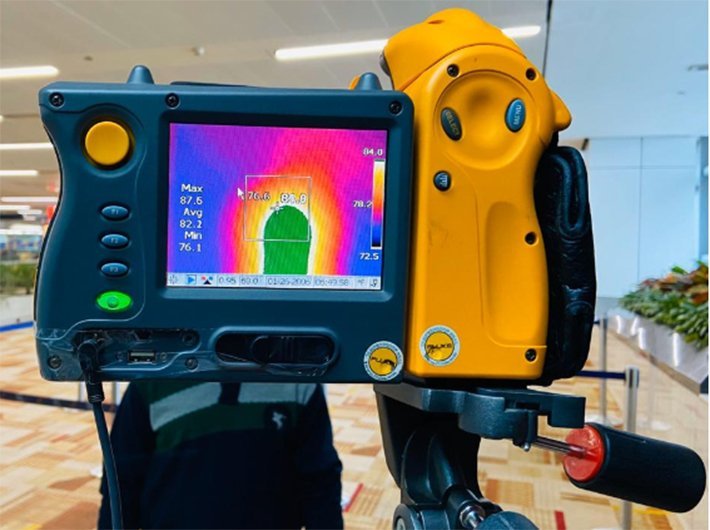Class 1-7 will restart from Dec 15: health ministry directs states to keep ‘close watch’ on international arrivals
The looming threat of the new Covid strain B.1.1.529, known as Omicron, has pushed the Brihanmumbai Municipal Corporation (BMC) to postpone the reopening of schools for classes 1-7 to December 15.
Earlier, these classes were scheduled to reopen from December 1. The education department of the government of Maharashtra in its circular of Monday had issued detailed guidelines for reopening of schools for Std 1-7.
“In view of the emergence of new Covid-19 variant, many countries worldwide have enforced stringent measures. Considering the international connectivity and population of Mumbai, the health department of Maharashtra state and MCGM are taking appropriate measures and precautions. To ensure the safe return of students to school MCGM has decided to defer the decision of opening of schools for Std 1 -7 by 14 days. Schools for Std 1-7 will open from December 15, 2021,” a statement from the BMC’s health department said.
The WHO has called for nations to enhance surveillance and sequencing of cases, sharing genome sequences on publicly available databases like GISAID, reporting initial cases; performing field investigations and laboratory assessments, implementing effective public health measures using risk analysis and science-based approach and increasing public health and medical capacities to manage the increase in cases.
In a virtual meeting held with all states on Tuesday, the union ministry of health and family welfare has directed the states to co-ordinate with APHOs for a list of positive travellers including details like name, contact details and complete destination address of all international travelers. States have been told to keep a close watch on international travelers from "at-risk" nations who travel to another state even with negative test results, ensure testing as per standard norms, avoid crowding and congestion by having separate holding areas for passengers awaiting test results and ensure pro-active availability and allocation of Covid dedicated health infrastructure, maintain buffer stock for required drugs, functional ventilators as well as oxygen supply.
The health ministry has directed that the state surveillance officer should daily monitor to track and contain its spread and of transmission in the country especially from recent clusters of positive cases. Call centers for monitoring of cases under home isolation should be strengthened, capacity building of clinicians and paramedical health workers and refresher training on PSAs, ventilators, clinical management, etc should be done and real-time dashboards for tracking available health infrastructure and oxygen status to be operationalized.
Since November 25, the health ministry has directed states to increase sampling and genome sequencing of international travelers from ‘At-Risk Countries,’ enhance surveillance of international passengers, increase testing with continued monitoring of hotspots, review health infrastructure preparedness, ensure prompt dispatch of samples for genome sequencing and use of IEC activities to promote CAB.
An international travel advisory has been revised and put up on the ministry’s website and also on the Twitter handle. The ministry of civil aviation has been advised to mandatorily ensure that all international arrivals mandatorily fill up self-declaration form on the Air Suvidha Portal including detailed destination address for contact tracing, details (name, contact details, address) of all travelers to be shared with concerned authorities and ensuring uploading of negative RT-PCT test report, have separate holding area, signages to guide passengers and prevent chaos and carry random sampling for RT-PCR tests(from countries not “at risk”). Airlines have been advised to ensure the availability of negative TR-PCR reports before allowing passengers to board.
Travellers coming from 'at risk’ countries will have to follow additional measures including post-arrival RT-PCR. Positive travelers to be isolated under separate facility and sample to be sent for genome sequencing. If positive for Omicron, strict isolation and treatment protocol to be followed till tested negative.
For international travellers coming from countries excluding those enlisted ‘at risk’ and who test negative, they be put under home quarantine for 7 days and retested on the 8th day. They will be subsequently allowed to self-monitor for another 7 days. Moreover, 5% of all international passengers coming on flights will have to undergo an RT-PCR test on arrival.
Samples of those found positive will be to be sent for genomic surveillance and treatment as per standard protocol. If negative, they will do self-health monitoring for 14 days.
The DHR and ICMR have also been advised to detect Omicron through available PCR assay at the earliest and advise COVID-19 testing laboratories.
Earlier, prime minister Narendra Modi urged people to be more cautious and follow CAB and spoke about the need to increase the second dose coverage. He directed officials to review plans for easing of international travel restrictions in light of the emerging new evidence.
The B.1.1.529 variant has 50 mutations overall including more than 30 on the spike protein alone. It is possibly ~500% more competitively infectious. It has more than >2x the number of bad spike mutations than Delta. The spike protein is the target of most current Covid-19 vaccines and is what the virus uses to unlock access to our body's cells. While researchers are still trying to confirm whether this makes it more transmissible or lethal than earlier variants, experts fear that Omicron may not respond to monoclonal antibody therapy or cocktail treatment.
Epidemiologic studies are underway to understand if Omicron is more transmissible. According to the WHO, all variants of COVID-19 can cause severe disease or death, in particular for the most vulnerable people. Thus prevention is key. While RT-PCR tests continue to detect Covid infection, studies are ongoing to determine whether there is any impact on rapid antigen tests.

